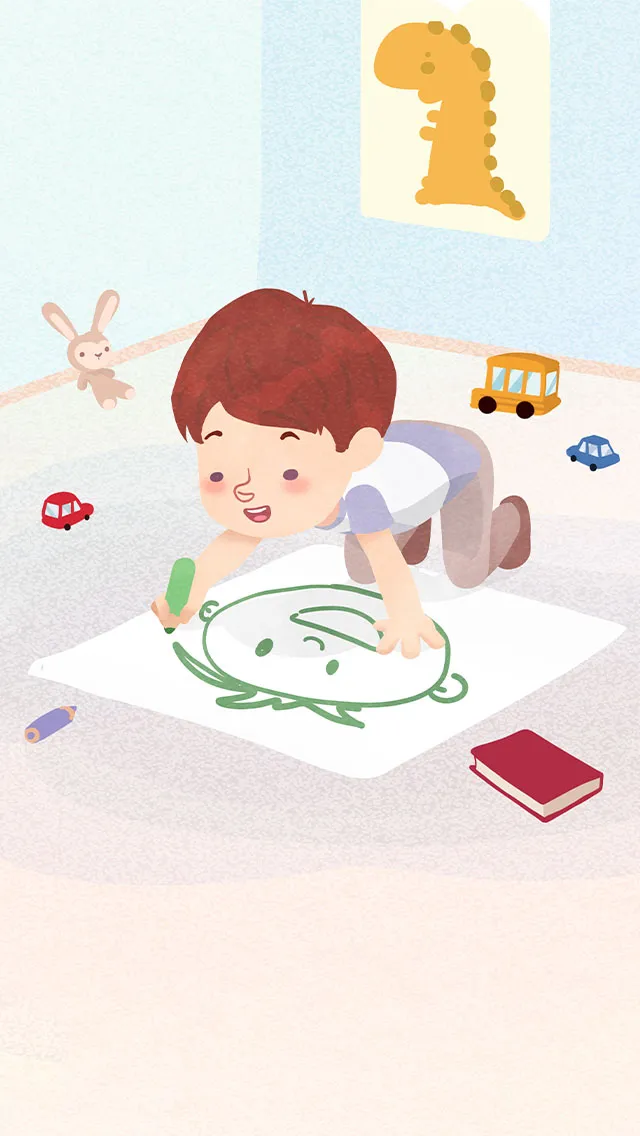Every parent wants to raise kids who are kind and respectful. Respect is a big deal—it helps kids build good relationships and understand the value of treating others well.
This article offers 12 simple and fun activities to help kids learn about respect in a way that’s easy for parents to incorporate into daily life.
1. Use stories about bespect
Stories are an excellent way to teach children about respect. There are many stories that promote values like tolerance and respect.
For example, Juan and María had a son named Diego, who often struggled to understand the importance of respect.
To help him, María decided to read him the story "When I Become a Dad!" on the Storybook app. It's a story with a massage that they can enjoy together, teaching her son to respect and appreciate the wonderful moments they share.
%25252011.15.50%2525E2%252580%2525AFp.m..webp)
2. Role-playing scenarios
Role-playing lets kids step into someone else's shoes and understand different points of view.
Create simple scenarios where your child has to show respect, like meeting a new friend or dealing with a disagreement.
Use toys or puppets to make it more engaging and fun.
This activity is a great way to teach empathy and respect in a playful setting and can also help with tolerance activities for kids.
%25252011.29.19%2525E2%252580%2525AFa.m..webp)
3. Teach respect for diversity
Help your kids learn to respect different cultures, religions, and ways of life. This teaches kids that everyone deserves respect, no matter how different they might be.
You can use the story "A World of Eggs" in Storybook app where different types of eggs lived in harmony on a farm.
This story will teach your little one the importance of respecting diversity and showing more interest and respect for the differences between people. Try it! 👀⬇️

4. Respect circle time
Circle time is a nice way for kids to share their thoughts and learn about respect in a group.
Let each child talk about a time they felt respected or disrespected. Use a talking stick to make sure everyone gets a turn to speak and listen.
This helps kids learn from each other’s experiences and understand the value of respectful communication.
It’s also a great time to practice mindfulness activities for kids.
5. Respect jar activity
Make respect visible with a Respect Jar! Every time a child shows respect, add a marble to the jar.
When the jar is full, celebrate with a small reward. This activity gives kids a clear idea of what respect looks like and motivates them to keep it up.
Consider pairing this with gratitude activities for kids to encourage both respect and thankfulness.
%25252011.45.48%2525E2%252580%2525AFa.m..webp)
6. Practice respect in your daily life
Kids learn a lot just by watching their parents. Show them what respect looks like by treating everyone around you with kindness.
Whether it’s your spouse, a neighbor, or a cashier. When kids see respect in action, they’re more likely to follow suit.
This can be a great time to demonstrate integrity activities for kids by showing honesty and fairness in your actions.
7. Create a respect board
A respect board is a fun, visual way to remind kids about respectful behaviors.
You can include pictures, quotes, and examples of respectful actions.
Review and update the board together to keep the idea fresh in their minds.
This can also tie into generosity activities for kids by adding examples of giving and sharing.
8. Use the peace table
Set up a Peace Table where kids can go to solve conflicts calmly and respectfully.
When there’s a disagreement, encourage them to go to the table and talk it out using kind words.
It’s a great way to practice problem-solving and respectful communication, and it complements forgiveness activities for kids.
9. Make classroom or home rules together
Get your kids involved in making rules for the classroom or at home.
When kids help create the rules, they’re more likely to respect and follow them.
Talk about why each rule is important and how it shows respect for others.
This is also a perfect opportunity to include patience activities for kids as part of the rule-making process.
10. The tree of respect
Create a "Tree of Respect" in your home. Each time your child does something respectful, add a leaf to the tree.
Watching the tree fill up is a fun way for kids to see how their good actions add up over time.
This activity can also be used alongside perseverance activities for kids by setting long-term goals for respectful behavior.
11. Play listening games
Games like "Simon Says" or "Musical Chairs" are not just fun—they also teach kids the importance of listening and paying attention, which are key parts of being respectful.
These games can also be a fun introduction to breathing activities for kids to help them stay calm and focused.
12. Start a respect journal
Encourage your child to keep a respect journal where they write or draw about times they’ve shown or received respect.
This helps them reflect on their actions and understand the importance of respect in everyday life.
Journaling can also be paired with emphaty activities for kids to help them stay connected and present in the moment.
What are the benefits of using a respect journal with kids?
Respect journals help kids think about their actions and understand how respect affects others. This kind of self-reflection boosts empathy and self-awareness.
Why is it important to teach respect to children?
Respect is the foundation for positive relationships and a peaceful society. Teaching respect helps kids develop the skills they need to interact well with others throughout their lives.
How to teach cognitive empathy?
Cognitive empathy involves understanding how others think and feel. Encourage kids to consider others' perspectives through activities like role-playing or discussing a story character's emotions.
Teaching respect to kids is not just important—it’s a gift that will help them throughout their lives. By trying out these activities, you can help your kids grow into respectful, kind individuals.

Written By
Entrepreneur mum. I created Storybook: Bedtime Stories the #1 app in over 90 countries. I have been able to help families with the app and through my social media influence. I also created a Facebook group with over 12,000 moms where we support each other.
References











